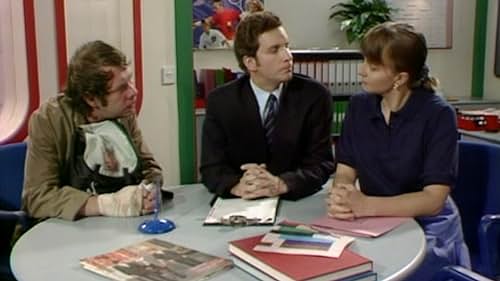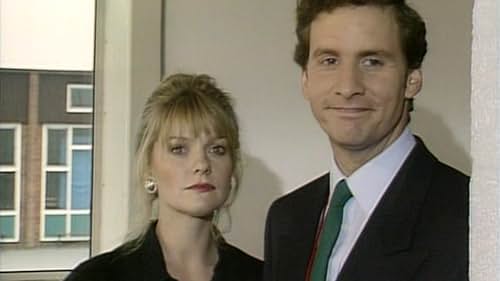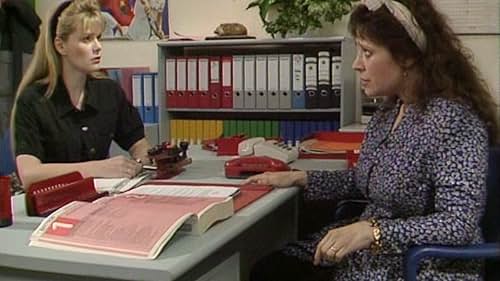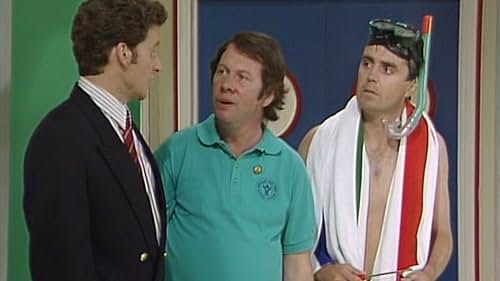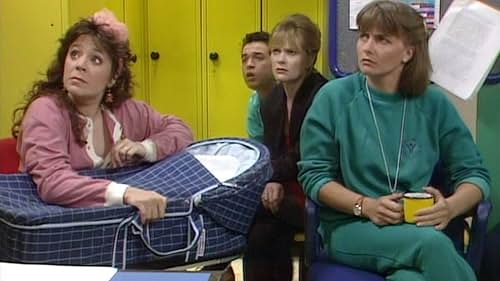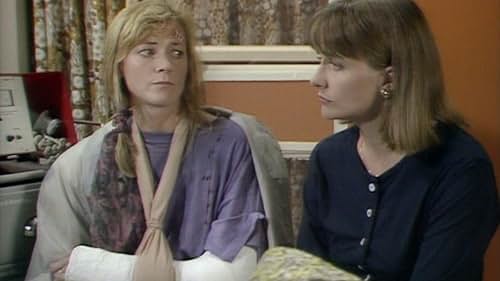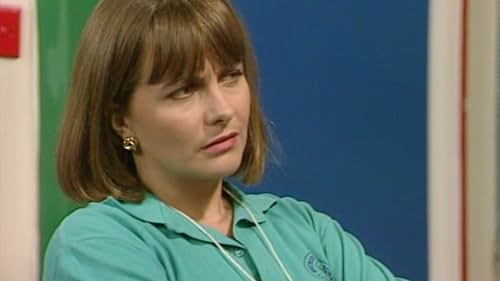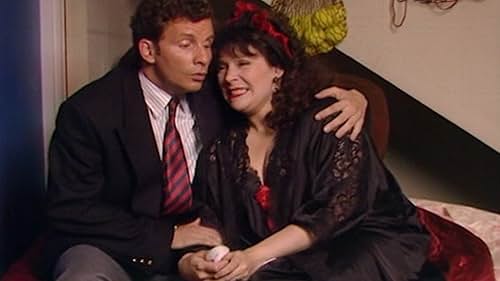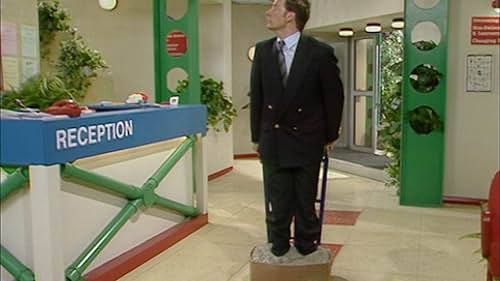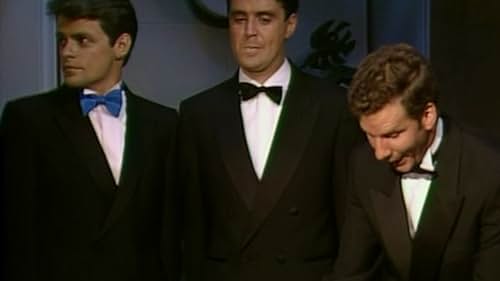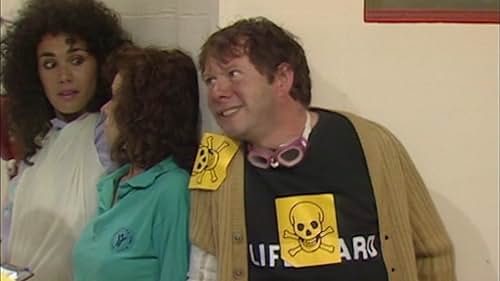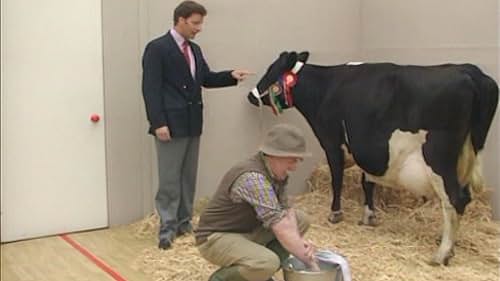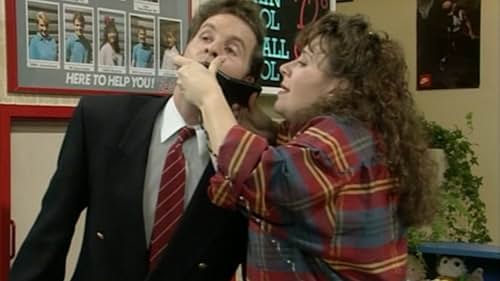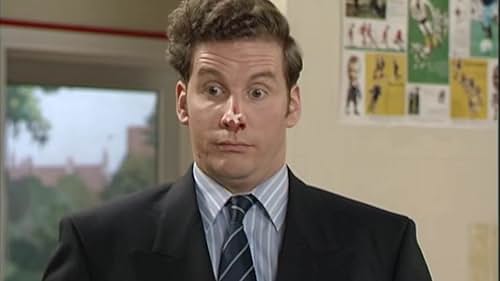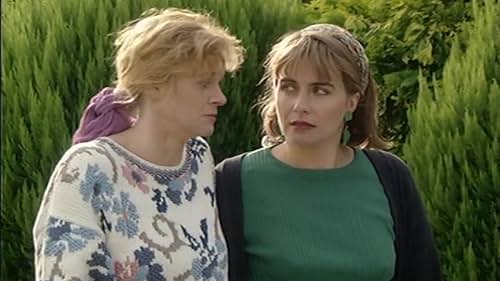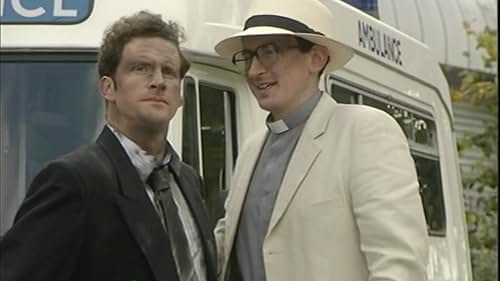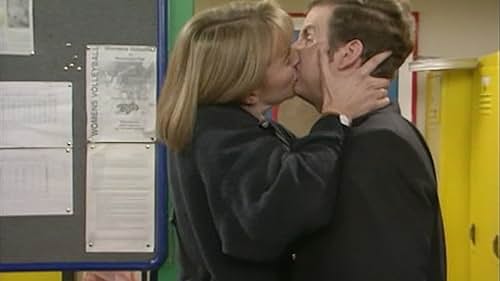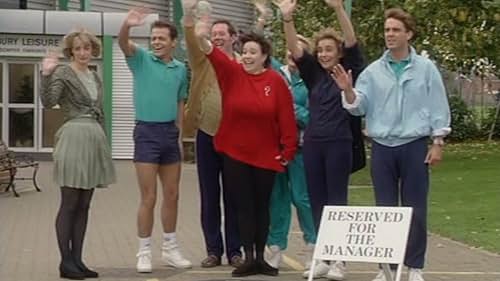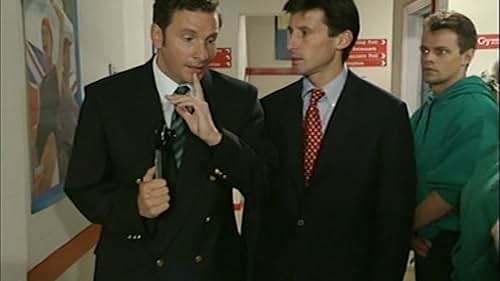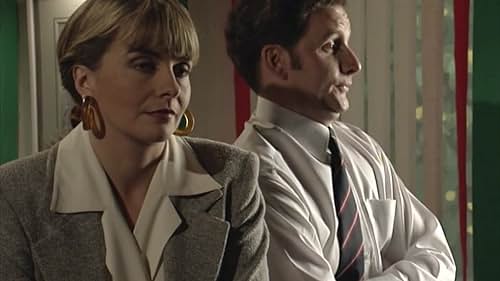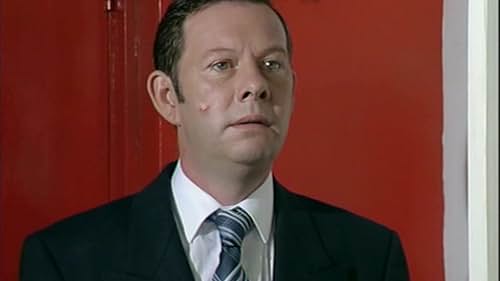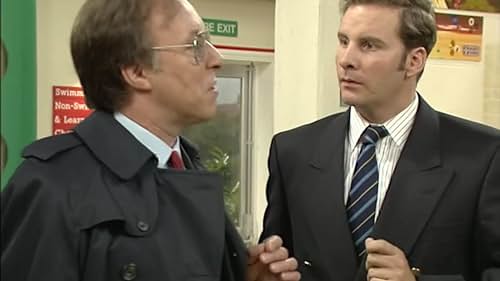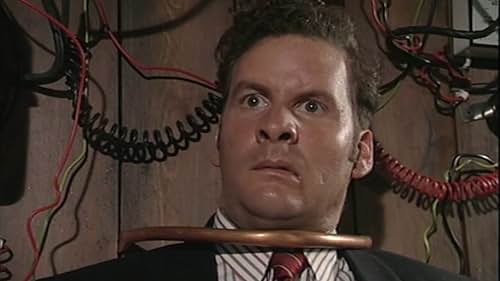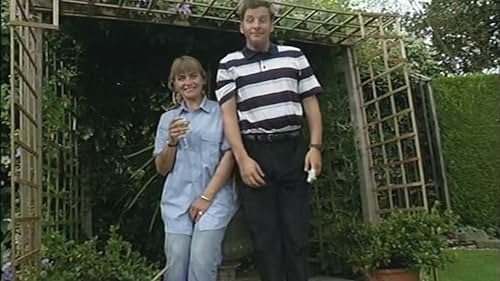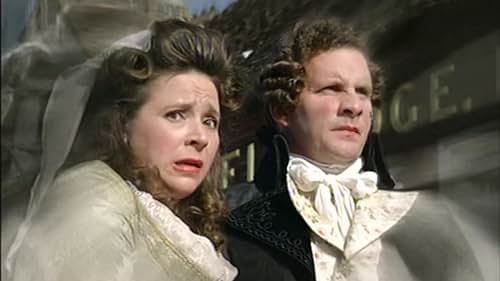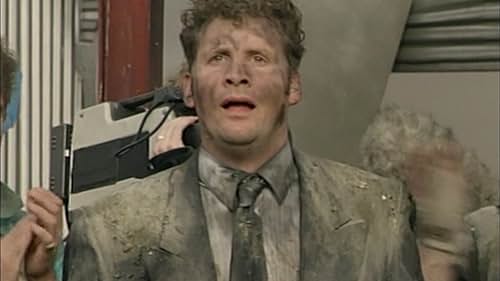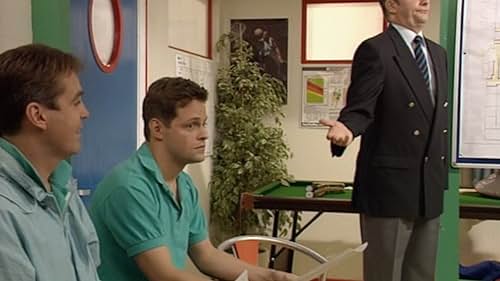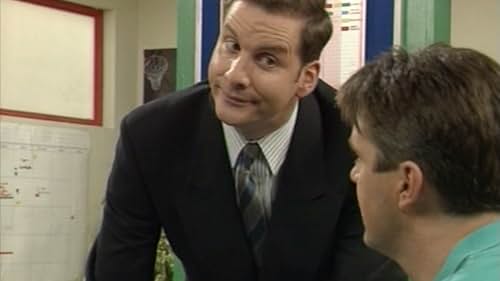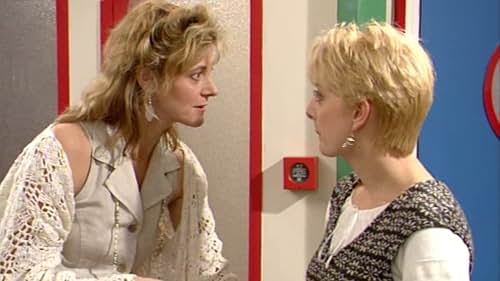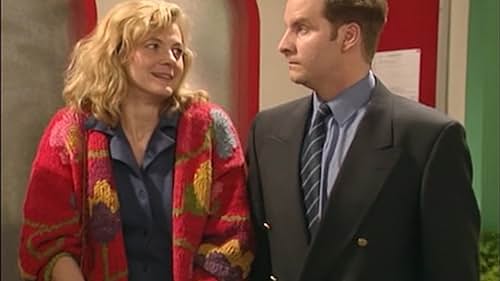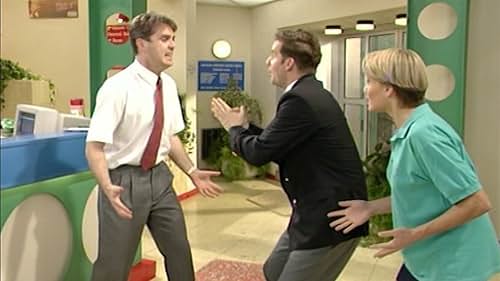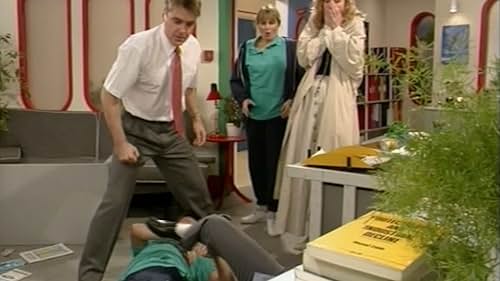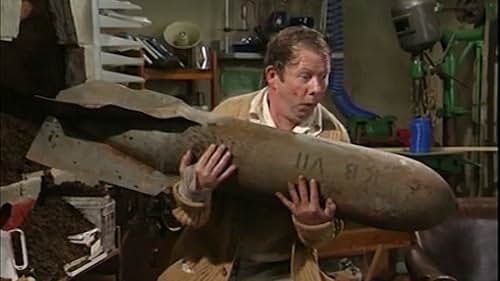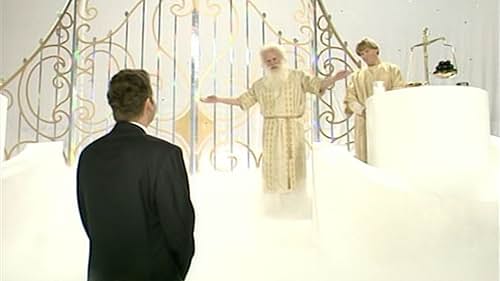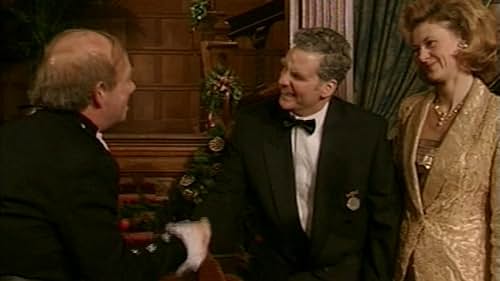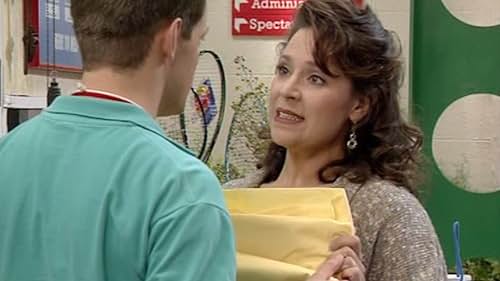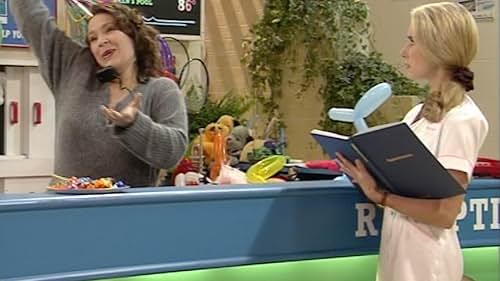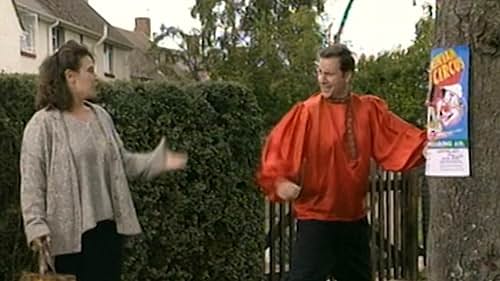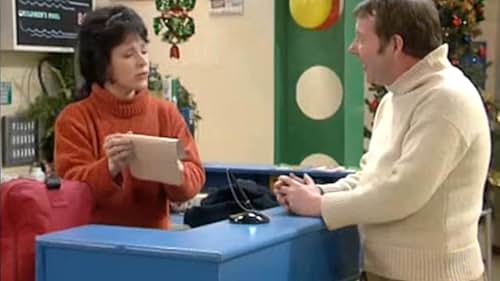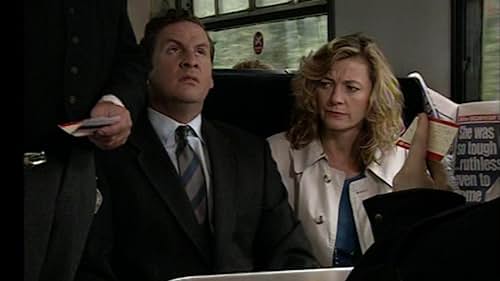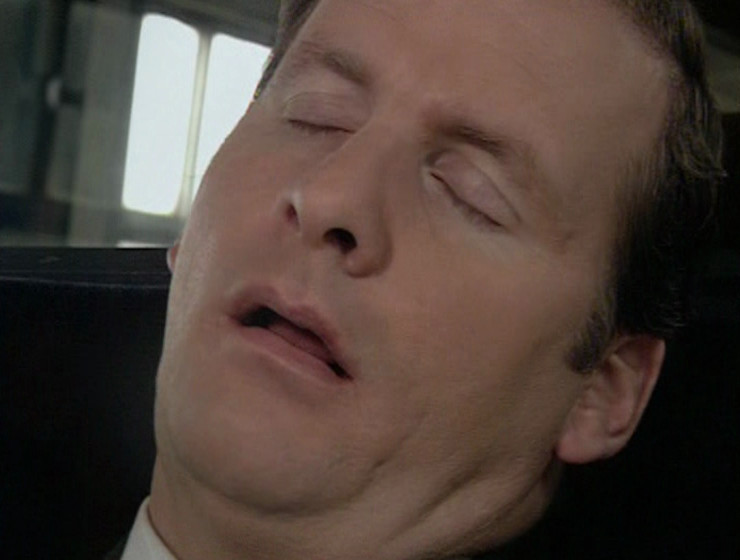THE CONTROVERSIAL END. SPOILERS BEWARE!!
By dirtyfeed.org/20
The Brittas Empire: “Curse of the Tiger Women”
Written by: Ian Davidson and Peter Vincent
Produced by: Mike Stephens
Directed by: Christine Gernon
TX: 24th February 1997
This is the story of one of my least favourite endings to a sitcom ever. But to figure out what went wrong, we need to skip backwards three years…
In 1994, The Brittas Empire had a pretty incredible run. No less than seventeen episodes were broadcast
1, across two series – and amongst those seventeen were some of the show’s very best episodes. Examples include “High Noon”, where the leisure centre is blown up on a sitcom budget (and largely convincingly, to boot); the audacious “The Last Day”, where they kill Brittas off, send him to heaven, and then resurrect him during his burial; and “Not A Good Day”, where… they chain Sebastian Coe to a railing and watch him suffer for half an hour.
What happened next is uncertain. The generally accepted sequence of events is that writers Richard Fegen and Andrew Norriss intended Series 5 to be the last series, the BBC recommissioned the show due to good viewing figures, Fegen/Norriss weren’t interested in returning, and so the BBC hired in new writers and told them to get working. I can’t find any interview which explicitly supports this story, but certainly Series 5 feels like the series was building to an deliberate conclusion. Every character gets their exit, with everyone given a chance of happiness: Laura moving to America to have a family; Carole becoming a governess; Julie marrying into a rich family; Linda accepted into Theological College; Gavin about to become manager of the centre, with Tim cheating his way into being his deputy… and Brittas off to Brussels, if he can recover from being dead. If this wasn’t supposed to be the final series, it’s doing a bloody good impersonation of one.
But no matter if the show had reached a natural end: there was work to be done. So the last two series, whilst still produced by Mike Stephens (who had been there from the very beginning), were by other writers: Ian Davidson and Peter Vincent, Tony Millan and Mike Walling, Terry Kyan, and Paul Smith. As writing assignments go, it has to be said this was a pretty thankless task. For a start, The Brittas Empire always had a very specific voice that is hard to suddenly get other writers to imitate – the programme title never sold how unusual the programme really was. (Though it did help them slip an awful lot of things under the radar.) Secondly, Series 5 was all about sending off the characters to their own happy endings – all that had to be cancelled, inevitably rather awkwardly. Thirdly, Julia St. John had decided to leave the series – and it’s difficult to overstate exactly how crucial a character Laura was. The moments of attraction between her and Brittas were some of the most emotionally touching in the entire series, but the character also manages the seemingly impossible: the “sensible woman” character amongst all the chaos. Usually that character is
a waste of everybody’s time – but here, it’s done right. (A wry smile and a wink will get you further than relentless exasperation.)
Worst of all, we come back to that final episode of Series 5. In an extraordinary sequence, Brittas gets squashed by a falling water tank (in some of the best effects work the series ever did), whilst saving Carole’s life. We see him go up to heaven, just scraping past the gates (
“115 separate acts of manslaughter… cause of four people committing suicide… and 23 driven clinically insane…”) – and then being sent back down to earth for being an annoying little shit (
“You take my word for it Peter, 2000 years is not too old to start playing seven-a-side!”) Meanwhile, the scenes on earth are played absolutely real – this is not treated as a comedy death. Our characters are genuinely in mourning. All until the burial… where we hear a knocking from the coffin, as Brittas awakes. It’s an amazing sequence – one of the most audacious in sitcom history – but it partly works because it has a sense of finality to it. Where the hell would any series actually
go from there?
To be fair, they make a pretty decent stab at it. The emotional beats aren’t as good, the lines aren’t as sharp, and the plots aren’t half as well constructed –
always the biggest strength of Fegen and Norriss – but those last two series perhaps work better than they could have done. Sure, the Laura replacement Penny is dreadful (and dropped for the final series), and the back-tracking on the fates of the characters is inevitably disappointing (with Carole’s being the worst) – but at least they bother to
try, rather than just ignoring everybody’s fates and resetting things back to normal with no explanation. (The reason for Brittas failing the medical for Brussels is especially amusing:
“He was dead!”) It’s also worth noting that the first episode of Series 6 even takes the unresolved plot point of an bomb from the penultimate episode of the previous series, and resolves it… in the usual Brittas manner. (Yes, a big explosion.) This shows a certain kind of care which is not always taken when a show is handed over to other writers.
Most crucially, however, the writers understand that Brittas has, as Mark Lewisohn put it, an “unusual obsession with death and danger”. Certainly, the gloriously tasteless vision of a class of schoolkids being electrocuted whilst roasted peace doves fall from on high is something well worth broadcasting at 8:30pm on BBC1… even if the episode in question had to be postponed due to Dunblane. Whatever the faults of the last two series, taming it down into a “normal” sitcom is not one of them. Unfortunately, it’s this last point which leads to the biggest mistake made in those last two series… and here, we drag it back to that final episode: “Curse of the Tiger Women”.
Because how
do you end a show like Brittas? Series 4 ends with blowing up the leisure centre; Series 5 ends with the aforementioned death and resurrection of the lead character. It’s easy to see how Fegen and Norriss might have decided further series really weren’t such a good idea. To their credit, the doomed writers Ian Davidson and Peter Vincent realise that Brittas can’t have a normal ending, and so they decide to try for something memorable. Unfortunately, the idea they go for is possibly the worst they could have come up with.
After an episode full of the usual: a gypsy curse, a build-up of marsh gas, Noah’s – sorry,
Colin’s Ark, yet another scene full of dead birds dropping from the sky, and
a ludicrous flying goose prop, we fade through to Brittas waking up on a train. Colin is the ticket inspector; Julie is in charge of refreshments, Linda is a nun… all the regular cast are merely passengers. Brittas is on the way to his interview for the job of manager at Whitbury Newtown Leisure Centre… and
everything was all a dream. Not just that final episode. Not even just the final series.
The whole show, from the very first episode. And all so they can do this line:
BRITTAS: I want the job, Helen, because… because… I have a dream.
Yes, yes, ho fucking ho. From the very first episode, we’ve been hearing about Gordon’s metaphorical dream; the final episode reveals he’s been having an actual one. How very clever.
The fundamental problem with this is obvious, and it doesn’t take a great deal of analysis. For all that Brittas is an atypical show full of death and danger and the odd maiming, like any sitcom it’s all about the characters. Hell, that final episode seems to go out of its way to understand this, by finally resolving the long-standing plotline about the real father of Carole’s children… and then it just pisses it all away. None of the series happened. All our investment in the characters over the past seven series was all pointless, because it wasn’t real. I’m rarely someone who will just
decide something in a show didn’t happen – but I make an exception for this one. Despite it being easy to understand what would have caused the writers to do it, it’s difficult to think of a more diabolical way to end the programme.
And that is the story of how Ian Davidson and Peter Vincent wrote one of my least favourite dream sequences of all time.
